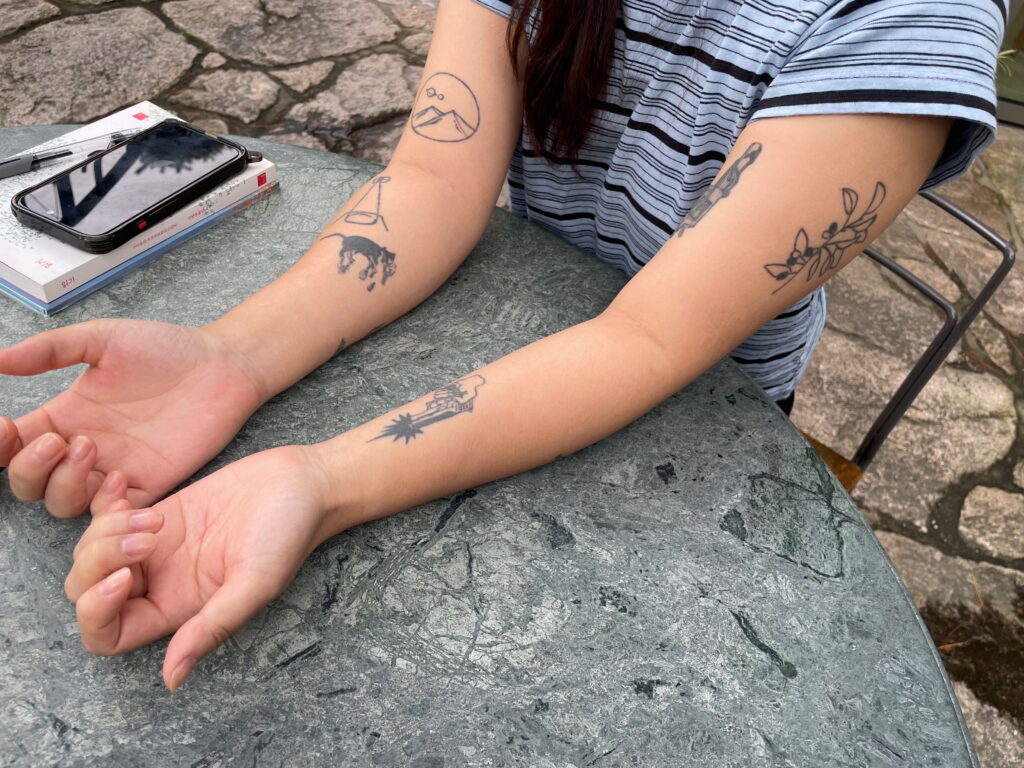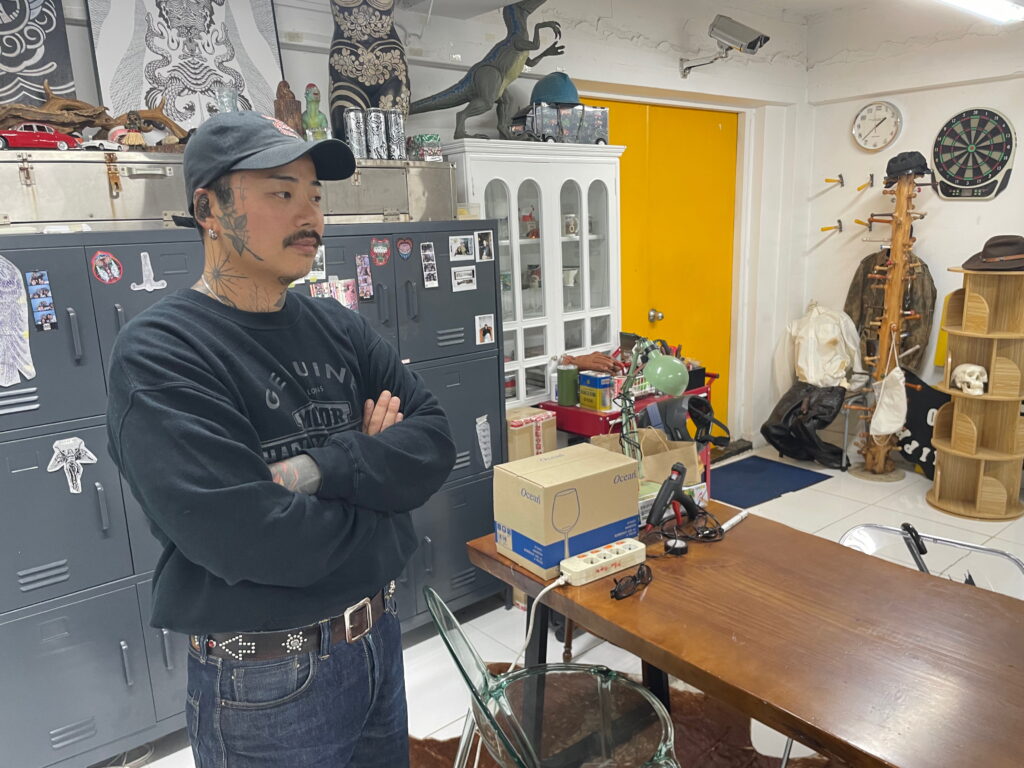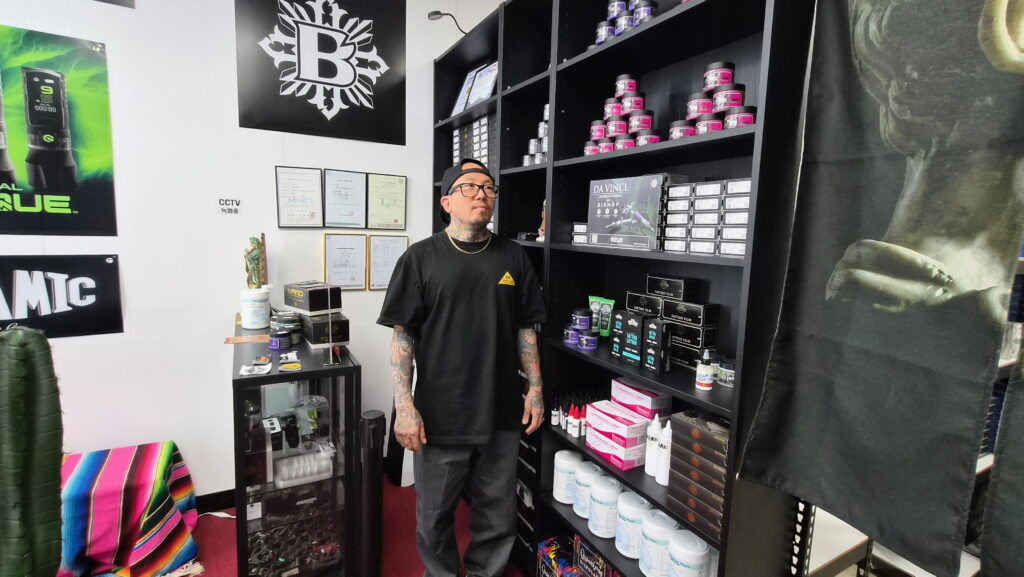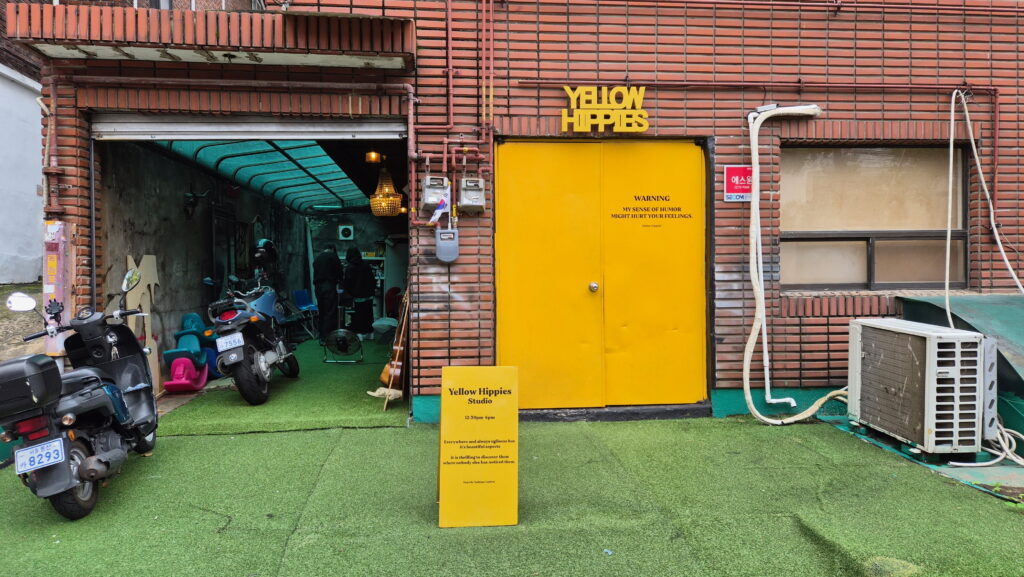Manage episode 514823021 series 3381505
Yoon Na-ri sits at an outdoor café near her apartment in Seoul. Even though the weather is a little brisk, she removes her olive green jacket and places it on an empty chair beside her, revealing tattoos on both arms.
“I have 17 tattoos and I’ve been to six different tattoo artists,” says the 39-year-old who works for an e-commerce firm.

Yoon explained it’s easy to book appointments with artists who showcase their designs on social media. But locating their studios could seem like a scavenger hunt.
“You can’t find their shops on maps, and there are no signs out front,” she said. “So, the artists send directions and sometimes give you the pin code for the electronic lock on their door or tell you to ring the doorbell first before they let you in.”
In South Korea, getting a tattoo was never illegal, but tattoo artists could at any time face arrest, fines or imprisonment. That’s because of a three-decades-old rule that required anyone providing a tattoo to possess a medical license.
Last month, lawmakers voted to abolish that effective ban and legalize the tattoo art profession. Now tattoo artists are trying to understand how the new law will change their industry.
Inside one Seoul tattoo studio, an artist draws a raven onto the shin of a client.
The shop’s owner, who goes by Kuba, says the new law will take off some of the pressure that artists have long felt.
“When I started in the business 13 years ago, police were clamping down,” the artist, who has black flowers and a bird’s foot tattooed across his neck and face, explained. “We used to have to monitor the door with a CCTV camera, and we only worked with customers whom we already knew.”

But Kuba says it’s unclear what requirements will need to be met ahead of when the new regulations come into effect in 2027.
“It looks like we’ll need to obtain a public health certificate, and I agree that’s a good requirement,” he said. “But it sounds like we will also have to pass some kind of written test as well as perform a demonstration, maybe on fake skin?”
The conditions of the new law “are still being worked out,” says veteran tattoo artist Kim Tae-nam, who’s known professionally as Sunrat Tattoo, and is advising the government on health and safety standards for the industry.
Kim said artists had been calling for years to change the law, but were met with pushback from South Korea’s medical establishment that wanted tattooing to remain as part of their domain. The stigma that associates tattoos with gangsters also presented a challenge, he added.

But it was only after tattoo artists found common cause with another industry that lawmakers changed their minds, according to Kim.
“We teamed up with cosmetic beauty clinics that do eyebrow and lip blushing tattoos,” he said. “They faced the same ban that we did.”
Kim explained the beauty industry is “100 times bigger” than the tattoo art profession and thus has more influence. But he speculates that there might be another reason why South Korean politicians felt swayed to legalize these jobs.
“It looks like around half of all the lawmakers in the National Assembly and even the president have eyebrow tattoos,” said Kim.
With passage of the new law, Kim says, there’s a chance to promote “tattoo culture” and end any professional or social prejudice toward his industry. He’s already planning a convention that will highlight the work of Korea’s tattoo art and beauty practitioners.
The last major tattoo convention in South Korea was in 2014. Police shut down that event, and Kim was arrested.
Tattoo artist Kuba says he’s waiting for more guidance from professional associations on how to proceed under the new law.

Now that the door to his industry is wide open, he worries these changes won’t all be for the better.
“Tattooing is an art and it requires certain skills,” Kuba says. “If it’s just a matter of obtaining a certificate, then anyone can open a studio.”
In a worst-case scenario, Kuba foresees the spread of tattoo academies – a parallel educational industry that’s common for many professions in South Korea. He’s also concerned that corporations will flood the market and studios will seem more like “hair salons.”
“Our work is going to become more competitive,” he said. “I was waiting for this day to come, but now I’m not so sure this will be good for tattoo artists.”
The post Tattoo artists in South Korea anticipate lifting of restrictions with mixed emotions appeared first on The World from PRX.
9 episodes



